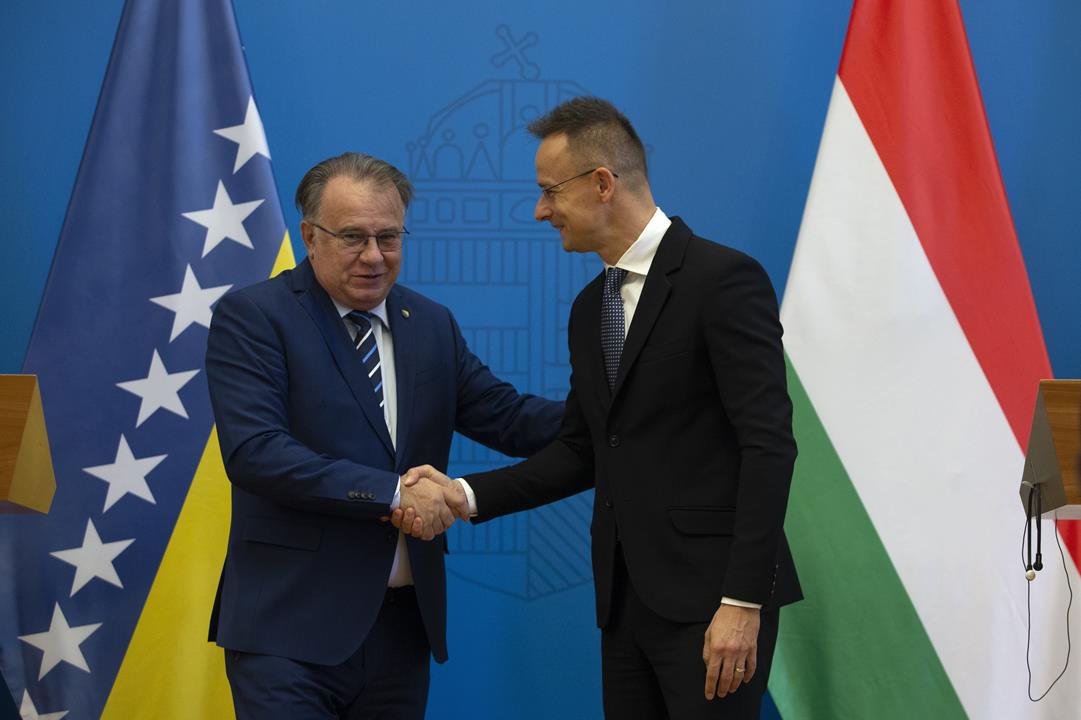Hungary strengthening ties with Bosnia and Herzegovina
Change language:
Business leaders from Hungary and Bosnia and Herzegovina met at a forum in Budapest on Friday. Hungary is committed to supporting Bosnia-Herzegovina’s accession to the European Union, as it would be beneficial for the country’s peace and prosperity, in itself an important factor in the Western Balkans’ stability, Szijjártó said.
Minister of Foreign Affairs and Trade Péter Szijjártó said over 60 executives from Hungarian companies and 32 from companies in Bosnia and Herzegovina participated at the forum. He added that the government would continue to support local businesses that seek to expand in the Western Balkans.
Among the Hungarian companies at the forum, Szijjártó pointed to ones in the machinery, environmental, energy, farming and food industries that were “among the global leaders” in their sectors.
He noted that annual bilateral trade between Hungary and Bosnia and Herzegovina had leveled out at over EUR 500m in recent years. Hungary’s farm, machinery, pharmaceutical and chemicals sectors account for most exports to Bosnia and Herzegovina, while Hungary imports mainly metal industry products from Bosnia and Herzegovina, he added.

Szijjártó said the government would continue to back Hungarian companies’ presence at trade fairs in Mostar and Tesanj.
Hungary committed to Bosnia-Herzegovina’s EU integration, says FM Szijjártó
Hungary is committed to supporting Bosnia-Herzegovina’s accession to the European Union, as it would be beneficial for the country’s peace and prosperity, in itself an important factor in the Western Balkans’ stability, Szijjártó said.
Speaking after talks with Nermin Niksic, the prime minister of Bosnia-Herzegovina, Szijjártó told a joint press conference that stability in the Western Balkans was especially important at difficult times.
Hungary’s policies regarding neighbouring states are rooted in constant dialogue and mutual respect, Szijjártó said, according to a ministry statement.
“We are doubtlessly among the few who can maintain dialogue with all players of domestic politics in Bosnia and Herzegovina,” Szijjártó said.
Hungary prioritises communication with Western Balkans states rather than talking about them, which Szijjártó said was more common in the EU. “We think that relations based on mutual respect of these countries’ sovereignty and will is crucial.”
Peace and prosperity in Bosnia and Herzegovina is also key to the region’s stability, he said.
Hungary is therefore supporting the accession procedure, which has been slow, he said. Bosnia and Herzegovina applied for EU membership in 2016, but negotiations only started last March, he said.





